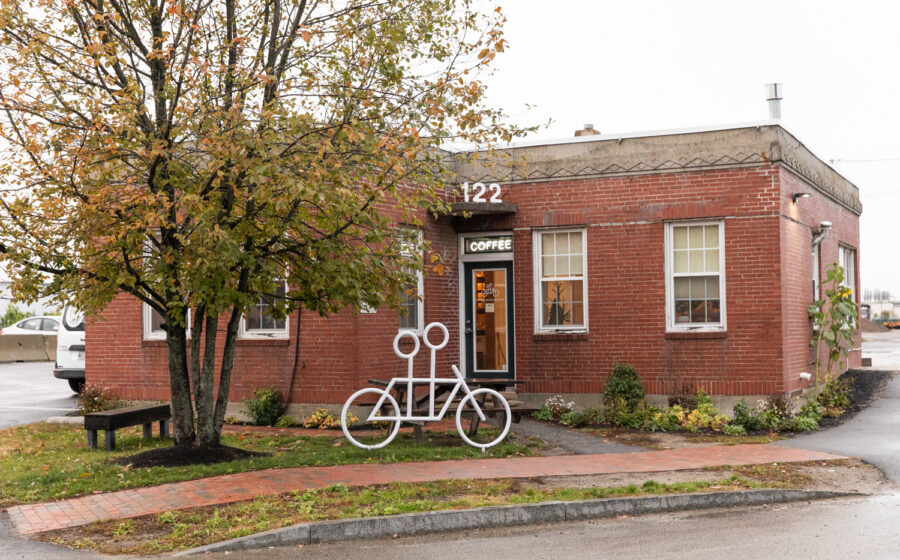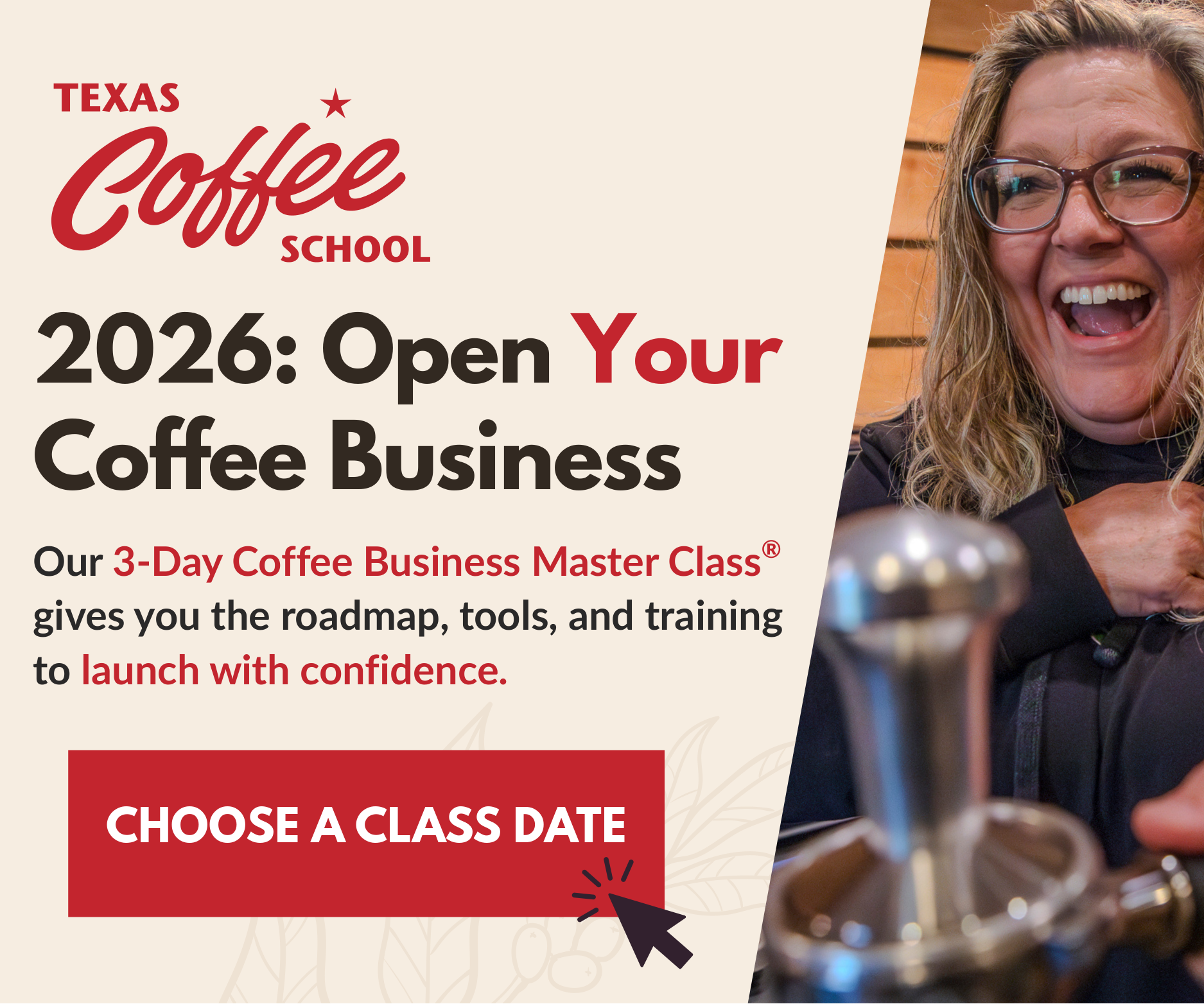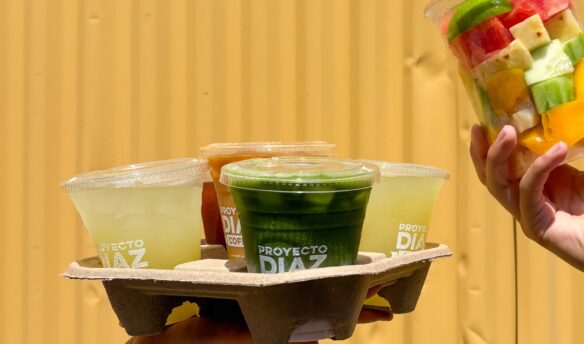In 2013, Heart Coffee Roasters reached a turning point. As the coffee shop and roasting company fine-tuned its operations inside the walls of its original location on East Burnside Street in Portland, Oregon’s Kerns neighborhood, opening a second location revealed a critical need: defining leadership roles within the cafe. “It was glaringly obvious that gaps still needed to be filled,” co-owner Rebekah Yli-Luoma says of the second spot, located in Portland’s West End neighborhood, “so people knew what they could rely on with each other and we could maintain consistency in the cafe.”
As businesses expand, the need for effective delegation and strong leadership becomes increasingly evident. Yet, an often overlooked aspect in the early days of coffee shop growth is creating clear career paths for employees. On average, coffee production businesses in the US have a small team of nine to ten individuals, including a manager, baristas, and support staff. Often, people end up falling into leadership roles without training or taking on new responsibilities without a clear path for career growth.
The role of a barista can be the initial stepping stone to various career paths in the coffee industry: starting as a barista can open up opportunities to explore jobs in shop management, roasting operations, or training roles within larger chains. But without clear directives for job advancement and skill building, baristas might not feel invested in by their leaders, making it hard to see how their careers can grow in the company. How can business owners facilitate meaningful career advancement for team members within the cafe?
Why Benefits Matter
Will and Kathleen Pratt first crossed paths while working at a small, independent coffee shop in Boston. Kathleen set her sights on starting her own cafe, but everything changed when the pair began working at Blue Bottle Coffee. Will got involved on the roasting end, which sparked the idea to launch a roastery to accompany Kathleen’s vision for a cafe.
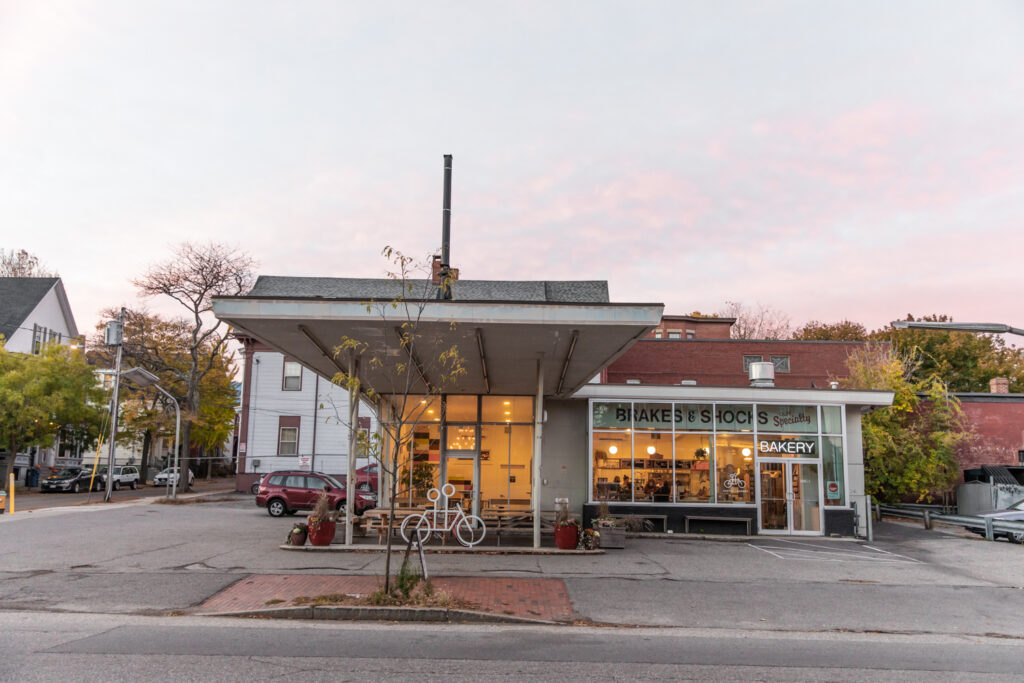
“Roasting really opened things up and made it more exciting from the beginning,” says Will Pratt. “We found a roaster on Craigslist in Massachusetts. We bought it out of some guy’s garage, put it in storage, and started our own thing a year later.” They’d go on to open their roastery and cafe, Tandem Coffee Roasters, in Portland, Maine, in 2012.
But the Pratts’ experience at Blue Bottle was transformative in more ways than one. Kathleen had worked at a few coffee shops, but this job was the first with employee benefits—a perk that would make an indelible mark on her personally and inform decisions made by the couple later down the road. “That was the first time working in coffee for her felt like a real job,” says Pratt. “She was a barista, but she had health insurance. That was not the case at any of the other cafes she worked for in the past.”
With Tandem, the Pratts operate two retail locations and a wholesale coffee program and are committed to offering their employees more than a job. Over time, they’ve introduced benefits like health insurance, paid time off, and a 401K plan for their full-time team members.
With a staff of 31, most Tandem employees work full-time, which they define as 32 hours or more a week. They cover 50% of monthly insurance for full-timers, 30% for part-timers, and 10% for those clocking in 1-15 hours. Managers receive full health benefits covered by the company, and employees can extend benefits to their spouse or domestic partner.
In Go Fund Bean’s recent coffee wage survey, 92% of salaried workers reported receiving benefits like health insurance and paid time off, while 38% of hourly workers reported not receiving any benefits. Among employees, health coverage tops the list of crucial benefits (67%), followed by life insurance, retirement plans, mandatory paid time off, and mental health support.
Heart offers health and dental insurance to all employees who work more than 17 hours a week and pays 80% of the premium. Benefits consist of a 401K plan with an employer match and paid time off that accrues after a year of employment. Other perks include paid parental leave and discounts on coffee bags, brewing equipment, and merchandise.
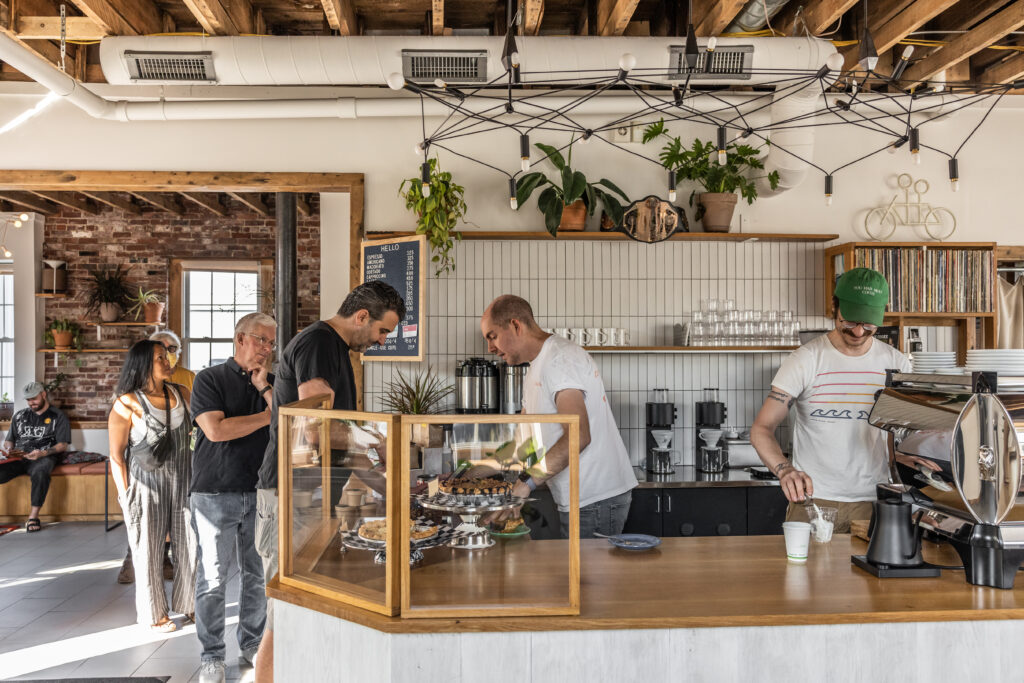
After one year at Tandem, employees become eligible for the 401k plan. They also have benefits such as bereavement leave, parental leave, and a short-term disability plan. Tandem actively encourages staff to explore coffee shops beyond Portland and reimburses them for any coffee drinks they purchase.
Providing benefits isn’t just about being generous—it’s a strategic investment. Tandem’s benefits package allows the Pratts to express gratitude to their team and fuels talent retention, acquisition, and overall workplace contentment.
Instead of aggressively pursuing growth, Tandem pours its resources into making existing jobs sustainable. Investing in retention holds real value: research from Glassdoor suggests that hiring a new employee typically costs around $4,000. “We’re not growing or creating new positions,” says Pratt, “but I think we keep it a nice place to work.”
Striking the Right Balance
Tandem took a cautious approach to growth by gradually adding benefits over the years to ensure their plans were sustainable and to stay within budget. “We try not to bite off more than we can chew,” says Pratt. After their first three years in business, the team began to project finances and use the sales forecast for the upcoming year to help decide how much they could allocate to an employee benefits budget.
Yet, the pressure persists. “We have a big P&L meeting where we do open book finances with our crew at the end of every year,” says Pratt. At this meeting, the team comes together to talk about money and assess the potential for new benefits.
We have a staff of over 30 now, but we’re pretty clear with people that we don’t want to grow anymore,” he says. “We talk about it with other coffee shop owners all the time. You definitely hear people talk about opening more shops because they have such talent they want to keep and give more responsibility to. Will pratt, tandem coffee roasters
Recently, the Pratts sent a group of employees to Costa Rica: employees who have worked for Tandem for five years receive a paid trip to a coffee-growing region. It’s not mandatory but a way to honor an employee’s commitment to the company. “We just did a big origin trip,” says Pratt, “because so many people hit their five-year mark during COVID when we weren’t traveling.” Today, eight employees have surpassed the five-year milestone.
Regarding growth within the cafe, at Tandem, current employees are prioritized for management roles when they open up. External hiring is rare and typically reserved for specialized positions like head roaster.
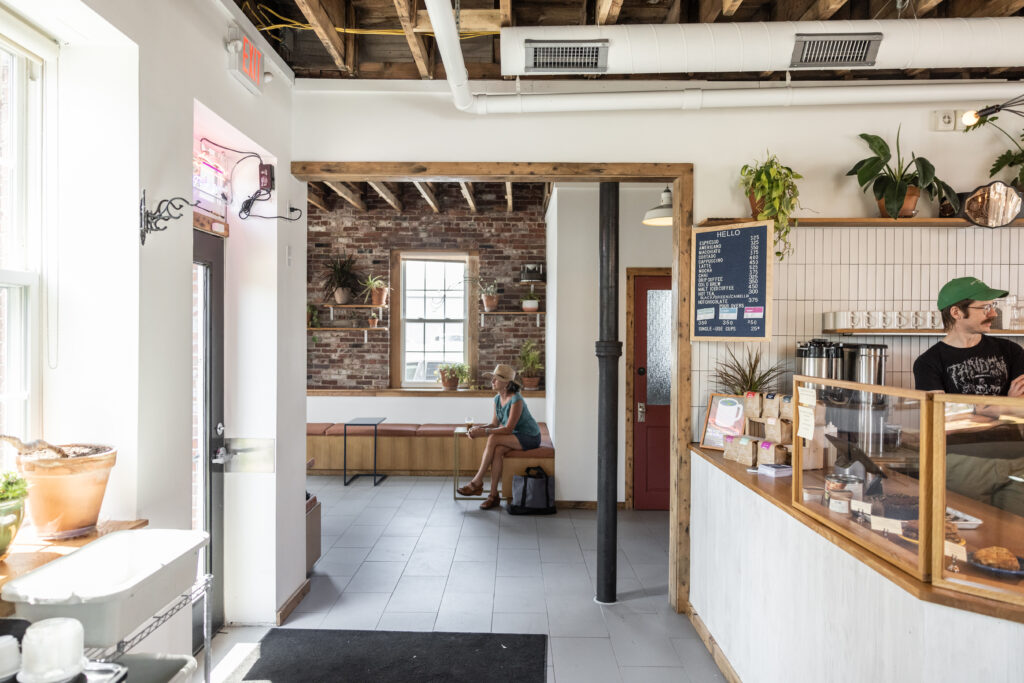
Initially eyeing a multi-location expansion, the Pratts shifted gears after launching their second shop. “We have a staff of over 30 now, but we’re pretty clear with people that we don’t want to grow anymore,” he says. “We talk about it with other coffee shop owners all the time. You definitely hear people talk about opening more shops because they have such talent they want to keep and give more responsibility to.”
Instead, they offer bonus incentives tied to overall cafe sales and strive for mutual success between the business and its employees. “We try to have people prosper with the business when it does well,” says Pratt.
For Tandem, keeping it small also helps retain employees. “We’re not absentee owners. We’re at the shops all the time, and everyone knows us well—we’re pretty tight-knit.”
From Staff to Leaders
Encouraging employee career growth often means promoting from within, particularly for leadership roles. “We always offer those jobs to everybody in the company before hiring outside. I don’t think we’ve ever hired outside the cafe when there are open leadership positions,” says Yli-Luoma, who owns Heart with her husband, Wille.
The path to leadership varies across roles at Heart. For instance, a barista’s next step might be a lead supervisor position. In these cases, Yli-Luoma would announce the opportunity to everyone and set up interviews with every interested candidate.
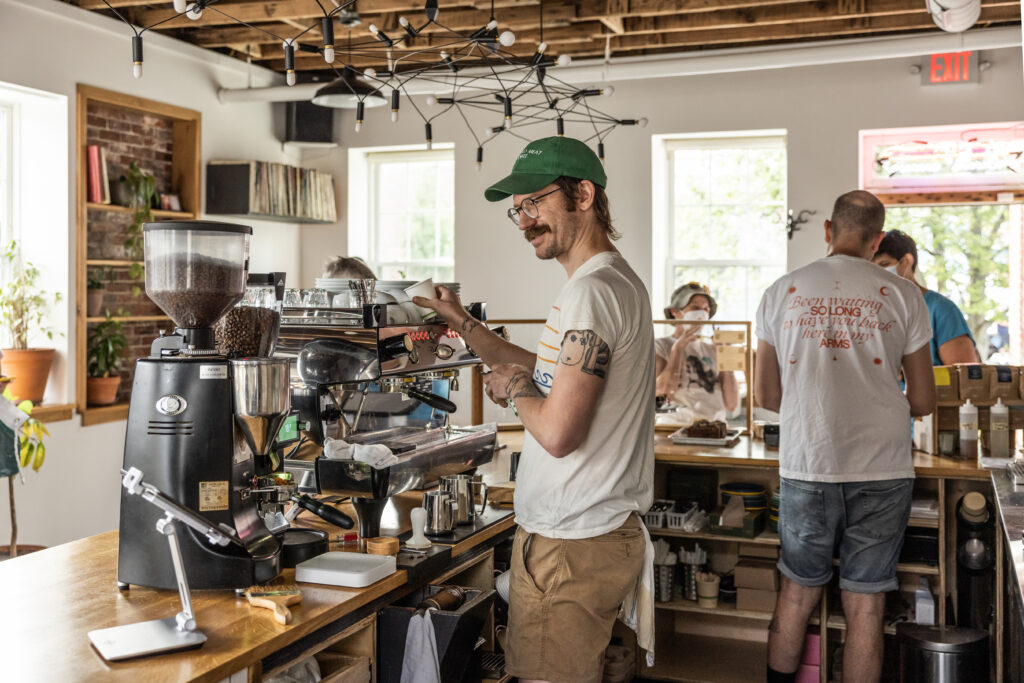
From a lead supervisor role, the next job promotion is to become a shift supervisor. If a cafe manager position becomes available, Yli-Luoma first considers interviewing interested shift supervisors internally before they seek out external candidates. There’s also room for lateral movement. “If there are folks in other departments at the roastery who are interested in a cafe-based role, we would meet with them and assess if it makes sense to interview,” says Yli-Luoma.
Heart has seen impressive growth within their team over the years: an employee who began as a barista moved into a managerial role and now works in the HR department. Others who started as baristas have successfully transitioned into thriving roles as shift supervisors.
Yet, Yli-Luoma believes that nurturing employee careers boils down to communication. In the early days, with only one cafe, Yli-Luoma was always around, and it was easy to keep everyone on the same page with just one manager. But as the business grew, they realized they needed more leadership to help support the team.
“Roles were defined by looking at the needs and where folks could benefit from with added support,” says Yli-Luoma. Over time, they’ve hired or promoted employees into roles like general manager to oversee the cafes, cafe manager, shift supervisor, and coffee trainer.
Despite their successes in helping people grow into new positions and advance their careers, creating meaningful job opportunities and career paths is an ongoing process that relies on constant communication. “We’re all learning together what this should look like and how it all comes down to communication—and what that communication should look like among leadership.”
